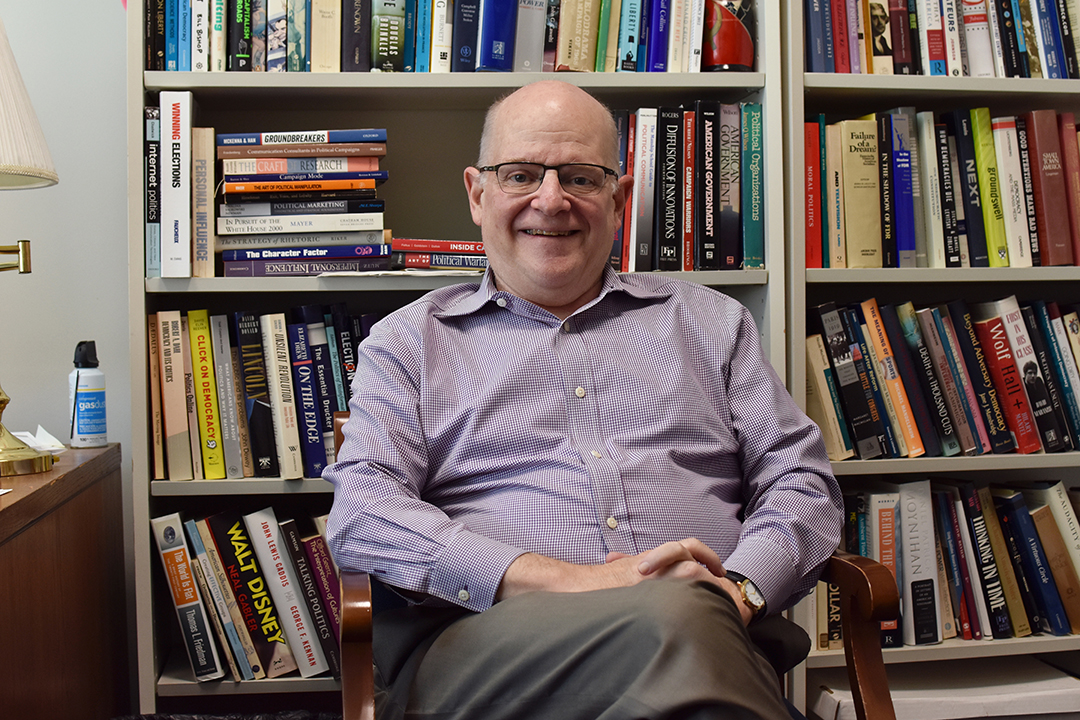A group of GSPM researchers led by Dr. Michael Cornfield will create a model and a simulation game evaluating climate change management with a grant from the American Political Science Association.
Q: What is the grant for?
A: The American Political Science Association (APSA) awarded a Research Partnerships on Critical Issues grant to a group of researchers at the George Washington University Graduate School of Political Management (GSPM) to conduct a comparative assessment of how politicians in eight Western Hemisphere countries are dealing with climate change.
Q: What motivated this project?
A: Every national signatory to the Paris Agreement has pledged carbon emission reductions by 2030 and 2050. But in the present day, each national government must also mitigate climate-related disasters and assure adequate and affordable energy supplies. Our central research question is how do governments that range from very democratic to very authoritarian in structure and culture go about managing both what’s immediate and what’s looming ahead. The answers, based on recent records in the countries under study will teach people how hard this balancing act is to perform, and ideally suggest ways of doing it better nation by nation and on an international level as well.
We hope that our Bifocal Governance Project political management simulation exercises can be of use to policymakers, students, and the general public as the issue continues to rise in election relevance.
Q: Tell me about the project.
A: Funded work on the eight-month project began April 1, 2022. Researchers have started developing the model and creating open-ended questions about a country’s political system, government capacity to deal with climate challenges, and potential risks.
The team will then interview officials and experts in the study’s focus countries of Argentina, Bolivia, Brazil, Canada, Chile, Colombia, Mexico, and the United States.
The research team will apply the interviewees’ responses and existing data to the model and run simulations for each focus country. The simulations will take into account factors and variables unique to each country and weigh the results against national performance metrics from the last decade.
Q: What phase of the research project are you currently in?
A: We are still in the research phase, learning about climate change politics in the eight countries and compiling statistics for the database variables. Expert interviews are underway.
Q: Who is on the research team?
A: GSPM full-time faculty members on the research team include Michael Cornfield, Natalia Dinello, Luis Raul Matos, and Roberto Izurieta. GSPM adjunct professors Crannell and Meagan O’Neill and applied experts Moura, Ximena Hartsock, and Christopher C. Hull are also key contributors to the project.
Q: Tell me how you plan to use the research.
A: A research report will be released shortly after the grant ends in November 2022 and public versions of the game will follow. The GSPM team’s findings will be built into a policymaking simulation game that will teach players about the difficult trade-offs involved in reconciling short- and long-term goals. The game will feature an empirical model built by the research team to provide game players with realistic estimates of the consequences their pending decisions will have.
For more information, contact Dr. Michael Cornfield at corn gwu [dot] edu (corn[at]gwu[dot]edu.)
gwu [dot] edu (corn[at]gwu[dot]edu.)
April 8, 2022 GSPM press release


